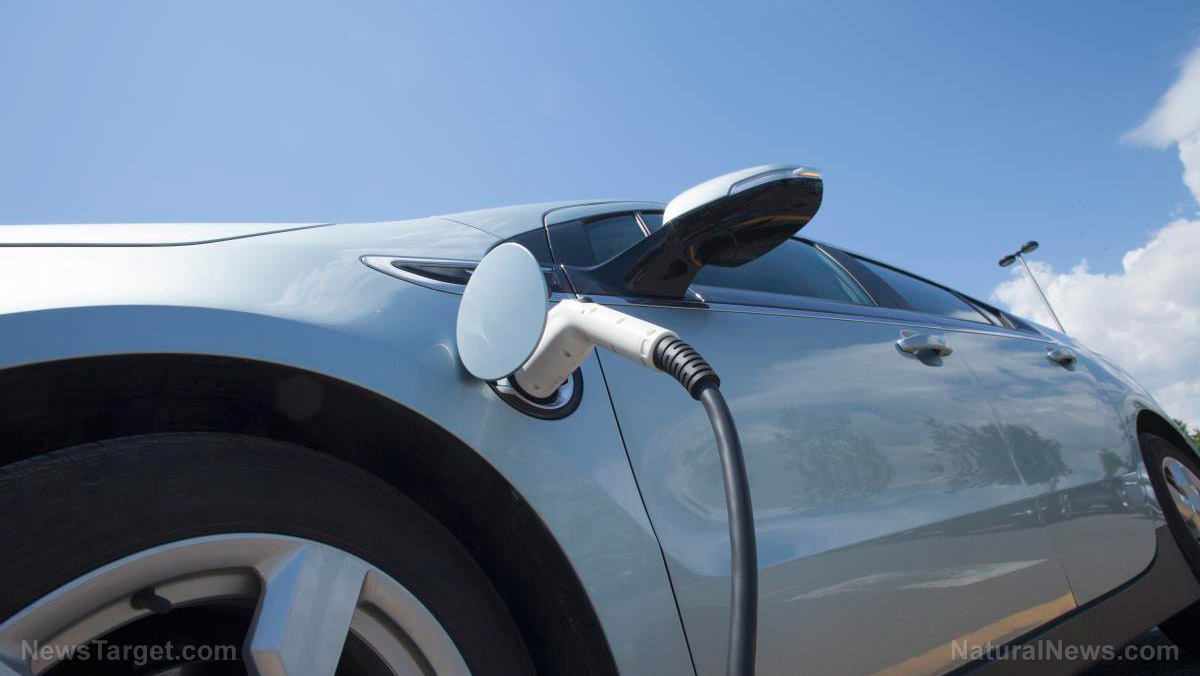Batteries for Apple’s new electric car will be made in China using toxic heavy metals
08/19/2017 / By Rhonda Johansson

Chinese publication, Yicai Global has reported that global tech giant, Apple, is renewing its plans to be a major player in the electronic vehicle (EV) market, with operations to develop its own autonomous car on the way. Supposedly, Apple would be sourcing their batteries from leading Chinese manufacturer, Contemporary Amperex Technology Ltd. (CATL). CATL developed its own brand after splitting off from the battery division of Amperex Technology Ltd. (ATL), the largest battery supplier for Apple’s electronic products. The Chinese manufacturer appears to be a growing force in the EV market, catching up in terms of name recall to other more recognized brands such as LG Chem and Samsung. However, the main item developed by CATL — especially for electric cars — is lithium-ion batteries. This, despite the numerous studies that have shown that these power sources produce dangerous gases when overheated. Ironically, many of these studies were made in China.
Lithium ion batteries are common energy sources for consumer gadgets like smartphones and tablets. These rechargeable devices are considered to be a viable power source because they carry a higher energy density than other batteries. This means that for its size and weight, lithium ion batteries can supply enough strength for a considerably bigger item. This characteristic has made it an ideal option for hybrid cars. (Related: Battery breakthrough could double range of electric vehicles.)
Traditional vehicles use a 12-volt, lead-acid battery which sits under the hood of the car. For the most part, we hardly pay attention to this instrument unless something goes wrong with it. Nonetheless, even with these engines working at “peak” condition, conventional devices emit harmful gases that can damage the environment and increase our risk of developing debilitating conditions. As we enter into a more technology-driven world, automotive manufacturers are looking at ways to make their cars safer and more efficient. Their solution? Lithium ion batteries.

It seemed like the perfect fit. These batteries were lighter, could store charge longer, and were more cost-effective at discharging cycles than a lead-acid battery. However, new studies are showing that long-term use of the battery needs to be constantly monitored. If these batteries are not properly charged, the source becomes easily susceptible to individual cell failure. The chances of it overheating (and potentially exploding) double, if not triple. This is already considering top-notch manufacturing procedures. Lithium ion batteries manufactured by less-than-reputable sources are naturally riskier.
Part of the appeal of lithium ion batteries was that they were allegedly “greener” as they contained no mercury, cadmium, or lead. Nonetheless, research into this are conflicting and often, cherry-picked. If you tried searching for the negative consequences of lithium ion batteries, you’d be hard-pressed to find a credible source, if at all. Still, a white paper released by Intertek warned the public that lithium ion batteries contain “other heavy metals that can be problematical for the environment.” This includes cobalt, copper, and nickel.
“There are also a large number of trace element metals that can reach toxic levels if batteries are discarded in sufficiently large quantities in a limited area. To which can be added electrolytes in the form of organic solvents with various different ingredients, such as flame-retardants that can damage the environment if the batteries are not collected and disposed of in a professional way,” the report went on to read.
It is these batteries that Apple wants to use for their new electric car.
This, of course, is all suppositions as the tech giant is keeping everything mysterious and secret. You will remember that only a few years ago, we assumed that Apple would be releasing their own EV after they began to aggressively hire experts from traditional car makers to build an automobile research and development team. After much speculation, it turned out that Apple was merely designing a technology that would help drivers navigate roads.
We may get an iCar soon, but only Tim Cook really knows for sure. Cook has teased with us a little bit though, suggesting that Apple is working on some form of driverless technology. He was heard saying that “[Apple is] focusing on autonomous systems,” and that this new project of theirs would be “the mother of all AI projects.” Whatever he was referring to we can only guess for the moment.
Read more stories like this on Robotics.news.
Sources include:
Submit a correction >>
Tagged Under:
This article may contain statements that reflect the opinion of the author





















